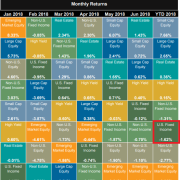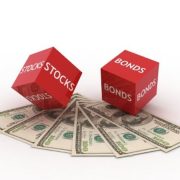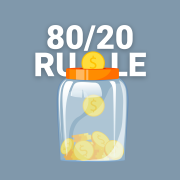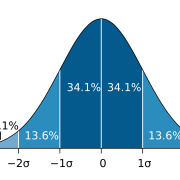Word on the Street – A Conversation with Marcia Clark, CFA, MBA
Word on the Street – A Conversation with Marcia Clark, CFA, MBA
A sit down with our Senior Research Analyst to discuss the US market, international markets, and how we are approaching both for investors.
For this Word on the Street, I sat down with Marcia Clark to discuss a recent report that stated leading economic indicators in the US are positive. Marcia and I discussed what this report means for investors and how it relates to our stance at Warren Street.
Enjoy.
Yesterday (October 18th), Blake shared a report that talked about long-term economic indicators looking good in the US. However, we have heard a lot from Blake on investing overseas in international and emerging markets. If the US looks so good, then why are we doing this?
M.C.: Even though indicators [in the US] are strong right now, we are still in an established economy, and it’s not possible for a huge economy like ours to grow as quickly as a smaller and more dynamic one. Smaller economies tend to grow faster than developed economies because they have to build out infrastructure to support new businesses. This infrastructure improves productivity which in turn drives economic growth. Since 2000, emerging economies have grown about twice as fast as developed economies.
How long will this period of US strength continue, and how long will we have to wait for emerging markets to have another boom?
M.C.: The US is currently experiencing one of the longest expansions in our history. While we’re grateful for the stable growth, we know this can’t go on forever. It’s extremely difficult to know when the end is coming or how bad it’s going to be, so what do we do? We hope for the best but prepare for the worst. To make an analogy – most of us don’t expect a house fire, but we still carry insurance. In the investment business, it’s wise to look over all markets to find the best opportunities and spread out the economic risk.
When we spoke about the report that Blake shared, you said, “when the US gets sick, the world sneezes.” If the US is not sick at the moment, why does the rest of the world seem to be dragging this year?
M.C.: When we say the US isn’t sick, how are we measuring that? Most people look at the S&P 500 and say the US is doing great compared to global averages, but if we take out the huge technology companies such as Google, Amazon, and Netflix, the US market isn’t that much further ahead. Many other countries experienced a “Great Recession” fallout in 2008-2009 far worse than the US, leaving them behind the US on the economic recovery timeline, particularly in regards to unemployment. Add to that the continuing struggle of European countries to integrate thousands of refugees from wars and conflicts in the Middle East and you can see why Europe and its neighbors are having a tougher time than the US.
Some people say that emerging markets are not a great value right now. If that is true, then why are we continuing to add to our position with them?
M.C. The US is largely insulated from many global challenges, but at the same time, the US is so well developed that there aren’t a ton of market-changing innovation opportunities here either. So, we look overseas. The first thing to understand about emerging market economies is that they are not a homogenous group. For example, you wouldn’t compare emerging economies in peripheral Europe to those in Africa or South America. When we look to add exposure in a diverse sector like EM, we investigate active asset managers with a track record of identifying the best risk-reward trade-off in that broad landscape.
So what you are saying is, when we talk about adding emerging market exposure, we are not getting all of the emerging market economies. What does Warren Street look at for their emerging market exposure?
M.C.: We aren’t investing directly in these countries, so we don’t have a country-by-country economic forecast. However, the fund managers we use do this full-time. Some even send members of their investment teams to these emerging countries to understand the political landscape, the sentiment of the population, and the vibrancy of the economy. Our job is to vet these managers thoroughly, check their track record across different economic cycles, and review their current country allocation against our thoughts on world conditions. From there, we then choose the best manager for the job.
Taking a step back to a previous question, what happens when the US does finally get sick? What happens to world economies in that landscape? Similar to your quote, I have heard “when the US gets sick, the world gets the flu.”
M.C.: It is true that the US impact on other countries is stronger than their impact on us, but the US economy is fairly insulated because we buy and sell so much within our own borders. In times when the US is struggling, other nations step up their trading with each other and muddle through until the US economy bounces back. As we talked about earlier, there are plenty of differences between the economic environment in the US and elsewhere – developed countries have done better than us plenty of times in the past. Remember that less developed countries are even less correlated with the US than developed nations. So when the US is sick, oftentimes the best place to look is smaller nations that are building their own economies in their own regions.
Taking a look back at the US economy, if the outlook is good, then why don’t we add more to the US stock market?
M.C.: Our job at Warren Street Wealth is to keep you safe and help you grow your assets. Even the most successful investors don’t have a crystal ball. They don’t get it right every time, so diversification is the only “free lunch” – we would be foolish not to take advantage of it.
The US is only about 40% of the world market. If we only invested in the US, we are closing ourselves off to an additional 60% of opportunities available to us. That just seems silly. Good stuff is happening all around the world, so let’s reach out and find it.
What do you say to the investor that only believes in the US stock market?
M.C.: For investors with a very long time horizon without the need to draw on their funds unexpectedly, the US stock market might be your only investment. But most of us don’t have the luxury of leaving our money in the market for 40 years and weathering all the storms that come our way. As fiduciaries of your assets, we have an obligation to protect your assets and help you achieve your long-term financial goals. We may not capture 100% of the upside, but we are confident that we are going to keep you from experiencing 100% of the bad times.
Anything else you would like to share?
M.C.: The world is a very big place, and sometimes we don’t know what exciting things are happening on the opposite side of the planet. Being open-minded about where you send your capital could unlock amazing things in other places.
Lastly, there is a fantastic set of information on the global economy that can be found at the IMF’s website: Real GDP by Country
 Cary Warren Facer
Cary Warren Facer
Partner Emeritus
Warren Street Wealth Advisors
Warren Street Wealth Advisors, a Registered Investment Advisor. The information contained herein does not involve the rendering of personalized investment advice but is limited to the dissemination of general information. A professional advisor should be consulted before implementing any of the strategies or options presented. Any investments discussed carry unique risks and should be carefully considered and reviewed by you and your financial professional. Past performance may not be indicative of future results. All investment strategies have the potential for profit or loss.









